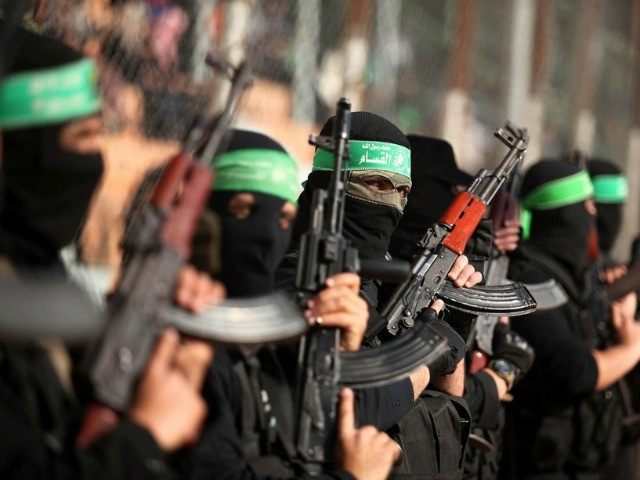“Top Egyptian intelligence officers met recently with senior Hamas officials from outside the Gaza Strip to discuss the poor relations between Egypt and the Strip’s Hamas regime, senior officials of the Islamist organization confirmed on Tuesday,” Israel’s Haarez wrote on Wednesday.
“According to Palestinian media reports, Hamas’ main demand was that Egypt reopen its Rafah border crossing with Gaza. Egypt, for its part, demanded several confidence-building measures from Gaza’s rulers, though Hamas officials declined to specify what these entailed.”
The activities of Hamas are a perpetual thorn in the Egyptian side through that Gaza border. Hamas is an offshoot of the Muslim Brotherhood, which the current government of Egypt came to power by deposing. Hamas is still partially classified as a terrorist organization in Egypt.
To be specific, in the time-honored Palestinian game of giving respectable “wings” to terror gangs, Hamas has a “political wing” that was recently certified non-terrorist by an Egyptian court, while the “military wing” is still viewed as a menace. Egyptian media is generally eager to pin terrorist violence in the Sinai Peninsula on Hamas. Egypt is steaming ahead with plans to blow up the tunnels Hamas has been digging across the border, in an effort to subvert the Egyptian blockade. Why are the Egyptians looking to mend fences with this crew?
The answer, as Haaretz explains, is because there is a new king in Saudi Arabia. If that makes your head spin, imagine what it is like for the Israeli intelligence services and strategic planners trying to keep track of all this.
“Palestinian and Arab sources said the main reason for the improvement in Egypt-Hamas relations was King Salman’s ascension to the throne of Saudi Arabia in January,” writes Haaretz.
Salman is considered less hostile to the Muslim Brotherhood – the Egyptian organization of which Hamas is a Palestinian offshoot – than his predecessor King Abdullah was. Moreover, he wants to distance Hamas from the Iranian-Hezbollah axis, a goal Cairo shares. Hamas sought a rapprochement with Iran after last summer’s war with Israel, though Tehran has seemed unenthusiastic about resuming its former role as Hamas’ chief patron.
To get a handle on how worried other Middle Eastern players are about nuclear Iran, take a look at what they’re doing, not what their diplomats and spokespeople are saying. Last week, the Israelis and Saudis announced they had been holding secret meetings to talk about Iran, setting aside a great deal of accumulated animosity to deal with a common adversary. Now it looks like Abdel Fattah al-Sisi’s Egypt is making overtures to the Gaza franchise of the Muslim Brotherhood Sisi overthrew, and vigorously stomped on, because Sunnis need to get their act together.
The shift in Egypt-Hamas relations has larger symbolic than practical significance, at least at the moment. Hamas still insists it will never fully reconcile with Egypt, Egypt is not ready to roll out the red carpet for Hamas dignitaries in Cairo, and there has been a certain low level of communication between Hamas’s and Egypt’s intelligence services all along. The Times of Israel quotes Egyptian officials saying Cairo’s major objective is getting Hamas and their rivals Fatah to reconcile, with an eye toward renewing the push for an “independent Palestinian state with its capital in East Jerusalem.”
But i24 News adds an interesting data point: Turkey, which hosts its own colony of Hamas militants, has been calling on the group to “decrease its anti-Israel terror-related activities.” Ostensibly this is because Israel’s complaints about Turkey indulging Hamas led to a rebuke from Washington. There is not much evidence the Turks are intimidated by the Obama administration on any other score. Perhaps they, too, are thinking a few moves ahead and planning moves on the new Iran-dominated Middle Eastern game board. Hating Israel has been politically useful across the Arab world for generations, but when push comes to shove, they all know Israel isn’t going to act aggressively against them. Sunni states have no such comfort with respect to Iran. That “Palestinian problem” must be starting to look like a lot more trouble than it’s worth in certain quarters of the Arab world.

COMMENTS
Please let us know if you're having issues with commenting.